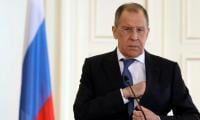LAHORE: Some of the newly-inducted Oil Marketing Companies (OMCs) continue to manipulate the Inland Freight Equalisation Margin (IFEM) by claiming long-distance freights and using freight difference as discount and selling/dumping products illegally at nearby retail outlets of other OMCs.
The practice is being carried out right under the nose of Oil and Gas Regulatory Authority (Ogra) which is responsible for ensuring fair business practices and maintaining a level-playing field for all oil and gas players in Pakistan.
The OMCs, taking undue advantage of the IFEM, have a long-prevailing practice of deceptively charging freight rates for long-haul distances even when the product is being transported to shorter distances. These high transportation charges end up burdening the IFEM pool causing an unwarranted surge in fuel prices for the end consumer.
According to the official documents available with The News, the big old OMCs raised the issue with the Ogra and registered their complaints. The malpractice that seems to be snowballing is a direct result of the disproportionate movement of volumes Ogra approves to these new OMCs on the pretext of the IFEM. Besides hurting competition and creating a sense of inequality, the unjustifiable IFEM volumes offer undue advantage to dealers, transporters, and other industry middle-men of certain OMCs. This allowance of higher transportation cost is turning dealers into mini OMCs in their own right that are minting money at the expense of innocent customers’ hard-earned, disposable income.
According to the freight reported in Ogra data of August 2018 shows that the newly-inducted companies are incurring transportation expanse up to Rs 6.64 per litre, while the big-sized, age old market players cost as low as Rs 2.15 per litre. If the differential of transport cost is multiplied to the volumes approved to new OMCs, the burden on innocent consumer of Pakistan goes to billions. The petroleum sector officials believe that the earnings these small OMCs add to their kitties are exorbitant and beyond measure. In terms of practicality, it is impossible to dispense that much product using the nozzles installed at their outlets even if they sell non-stop round-the-clock.
However, the Ogra approving and allowing movement of volume more than actual demand and selling capabilities of the new OMCs is nothing but a formal encouragement to abuse IFEM and facilitate them to offer abnormal discounts to the dealers of other OMCs. And eventually Ogra endorse their dumping as genuine sales and turns the act lawful. An industry official questioned that how Ogra approves transportation of volumes without taking account of number of retail outlets and the storage capacities of new OMCs. The facts that private firms set rates that benefit them and the physical movement of petroleum products remains largely unverifiable contribution to manipulation of the IFEM. Sticking to a chair’s decision in IFEM April 2016 meeting could have resolved the issue. It said that the volume approvals should not be more than average volume of the five formal and recognised OMCs including PSO, Shell, TPPL, Attock Petroleum and TPML.
A top official of one of the affected OMCs on the condition of anonymity said, “When an OMC is approved PMP volumes higher than its sales, they get an unnatural share from the IFEM pool and become capable of dumping and illegally selling products outside their retail network. On one hand, this gets the OMC unrealistic sales volumes enabling them to get even higher movement plans approved in the next IFEM meetings, while on the other side, a rightful player from top three OMCs lose their market share.” In response to a question about who particularly gets the highest hit, the source informed, “The State organ PSO definitely gets the worst hit being the largest shareholder and then other top players like Shell and Total also suffer due to this illegitimate practice endorsed and encouraged by OGRA.” The analysis of the quantities approved for the fuel movement of these smalls marketing companies shows that their approved product movement quantity is divided by their retail outlets in long-haul areas, the average sales turns out to be a most inflated and unrealistic i.e. more than 2 million litres per retail-outlet in a month. Besides the inability of these OMCs’ equipment to dispense these much quantities, the numbers are also utterly unrealistic because with their low-purchasing powers, the people of these areas neither need nor can they purchase this much fuel even if they spend every penny of their earning.
According to the official, the IFEM is a cost component built to keep prices of petroleum products same across the country. It is the part of the cost that a consumer pays for every litre of fuel he fills in his vehicle at any OMC retail outlet. The IFEM constitutes the total cost of the fuels the companies move from refineries to their depots nationwide with the entire transportation cost prorated in every litre sold. The government is striving to make fuel affordable for the public but cost of such decisions of the Ogra is being bear by the consumers. An Ogra spokesperson on the queries replied, “The Inland Freight Equalization Margin is an integral component of the final price of MS, LDO, SKO and HSD, through which prices are maintained at an equalised level across the country despite disparities in transportation costs; thus price is equalised at 22 OMC depots/locations spread all over the country. The Ogra has been entrusted with the role of determination/computation of IFEM since 01 September 2008.”
It is pointed out that the OMC demand/supply are determined at monthly Product Review Meeting (PRM) held by Ministry of Energy (Petroleum Division). Subsequently, the IFEM is computed/determined by Ogra in the monthly meeting held with OMCs and refineries’ representatives. New OMCs are entitled to claim IFEM based on marketing license and as per their supply arrangement. The whole process involves ascertainment of local product availability from refineries and the differential of demand is met through imports. Therefore, OMCs in the light of product allocation by refineries, plan the import of petroleum products to meet their demand in the respective areas of operation.
The IFEM is basically the movement of petroleum product across country at 22 depot location at most economical and efficient rates. It is accordingly ensured that the product of OMCs, either through import or local refinery production, is transported through most economical rout.
It is further said the Ogra has mechanism in field to check OMC product movement as per their actual established demand through confirming their monthly tank lorries reporting volume, monthly actual depot sales volume, actual refineries purchases etc.
Further, the Ogra has made compulsory/mandatory for existing as well as new OMC to transport products through tracker fitted tank lorries to ensure products reach its intended destinations besides the additional control of inspection of physical reporting of tank lorries at depots. OGRA ensures to remove any possibility of IFEM misuse by OMC’, the spokesperson stated.
Situation became increasingly tense as two superpowers , Western bloc, and their allies were aligned against China
Junaid Akbar says they were waiting for directions from leadership regarding release of Imran Khan
A Kalashnikov rifle and hundreds of bullets were recovered from the scene
Airline will operate two weekly flights departing every Sunday and Wednesday from Lahore
Declaration was also signed by founding speakers and members of the forum representing 45 countries
SI Muhammad Farooq, son of Bahadur Khan, a resident of Mardan, got registered report in an injured condition







